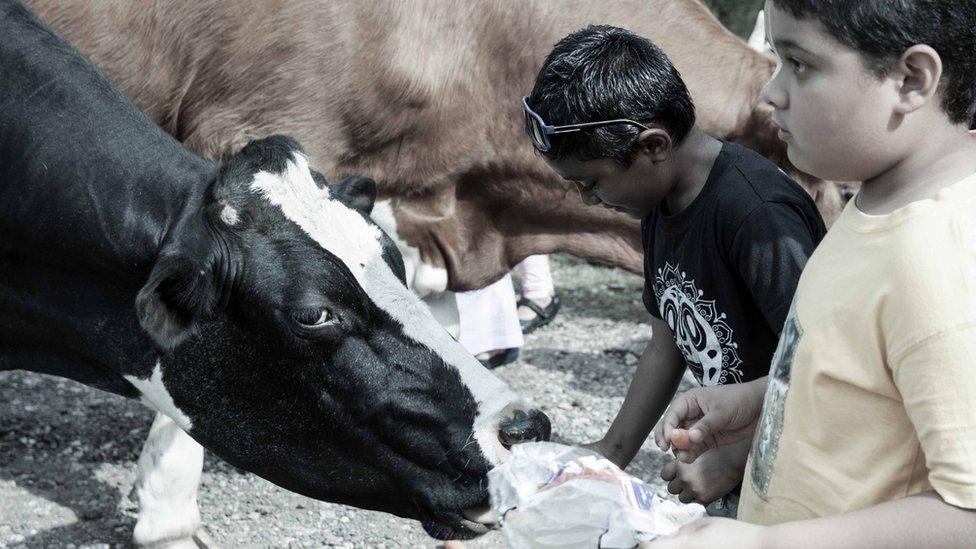Hindus urged not to donate new fivers at Leicester temple
- Published
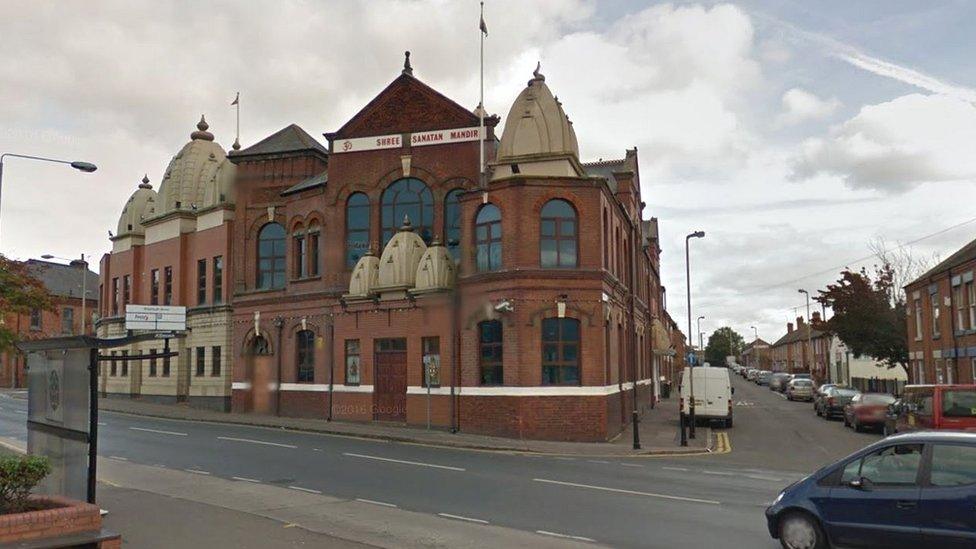
The Shree Sanatan Mandir is one of Leicester's oldest and largest Hindu temples
A Hindu temple has urged worshippers not to give new five pound notes in donations after the Bank of England confirmed they contain animal fat.
The notes are made from small amounts of tallow, derived from animal waste products, which has angered a number of groups who are against animal harm.
Vibhooti Acharya, president of one of Leicester's largest temples, said it has caused "anger" among Hindus.
She said the temple's committee was considering a ban on the notes.
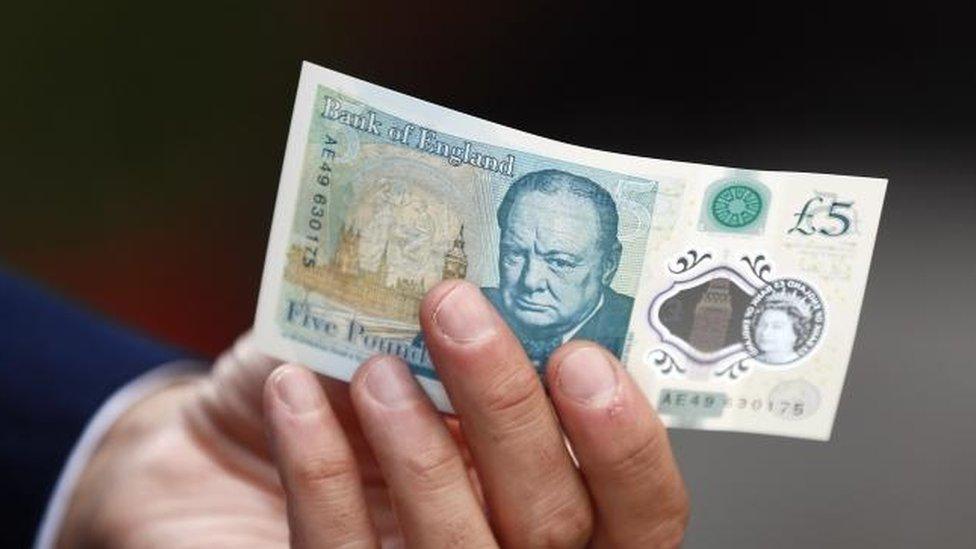
The five pound notes have been in circulation since September
About 90,000 people have signed a petition calling for tallow to be removed from bank notes.
The fatty substance is traditionally derived from beef or mutton and sometimes pork, at the slaughterhouse or later in the food production process.
Donations are taken at the Shree Sanatan Mandir temple for charitable causes in the community.
Ms Acharya, from the temple, said the revelation has been a source of "frustration" among Hindus as hurting animals is against their beliefs.
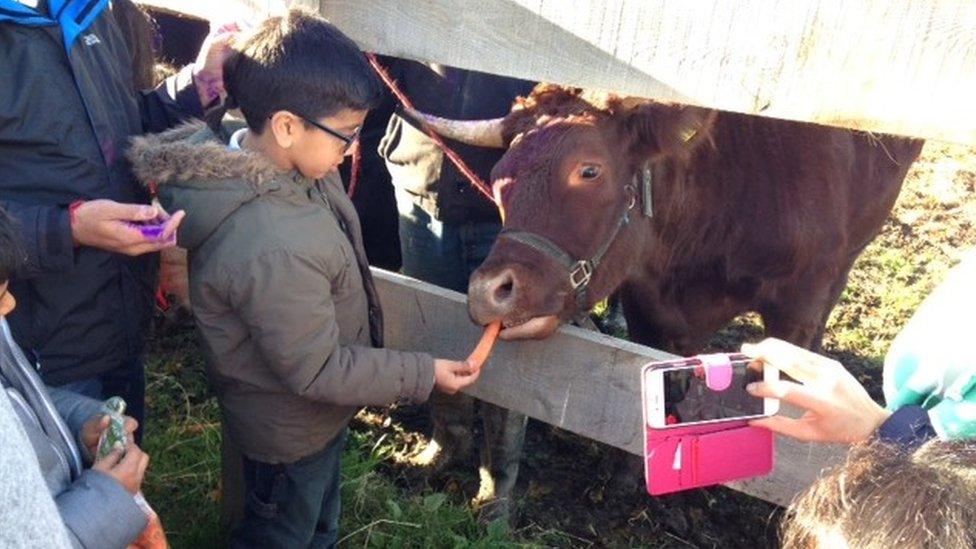
Cows are sacred and are honoured in the Hindu community
She said: "No-one was informed and it's been thrown upon us. We don't have the opportunity to choose.
"There needs to be a decision made between committee as to whether we accept five pound notes in religious ceremonies in future.
"We have to give a reasonable amount of time for resolve, [but] we can't really take any drastic steps because it's just not practical."
She said the temple will encourage people not to bring in the fivers as charitable donations and will put up notices to make them aware.
However, Ms Acharya said it was a "matter of choice" and the temple will accept them for now.
Leicester has one of the largest populations of Hindus in England and Wales and holds one of the biggest Diwali celebrations outside India.

Holy cows - why are they revered?
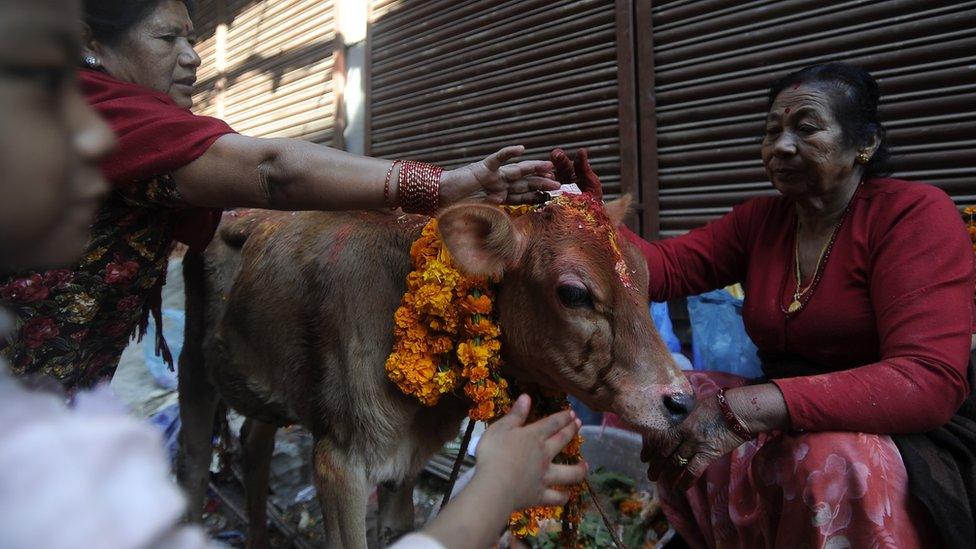
In rural India cows and bulls are considered the most useful of all domestic beasts
Eating only grass, one cow produces more milk than a whole family can drink in a day. What is not used is turned into yoghurt, cheese, butter and ghee
Because cows supply milk, in Indian culture they are looked upon as "a mother", and revered as such
The stool of a cow has antiseptic properties and is widely used in medicine - Cow urine is also prescribed in some places
In many areas of India cow pats are dried in the sun and used as fuel for cooking
When a cow dies she gives her skin for shoes and bags, and her horns for other implements
The bull is still used in farming throughout rural India, and is seen as a father, working hard to produce man's food. And as a father he too is considered worthy of reverence
Source: Bhaktivedanta Manor - UK home of the Hara Krishna Movement

- Published29 November 2016

- Published12 November 2015
